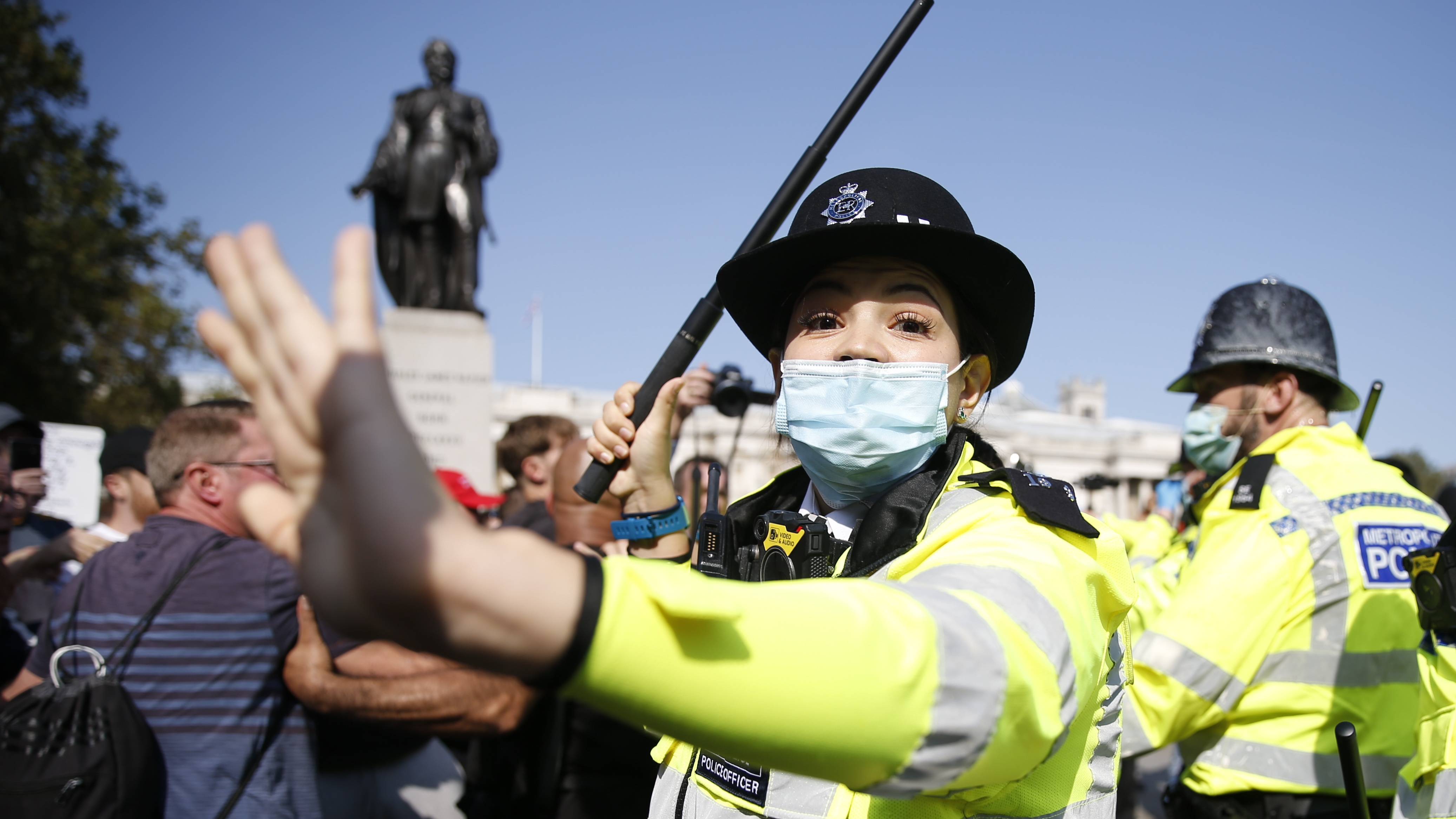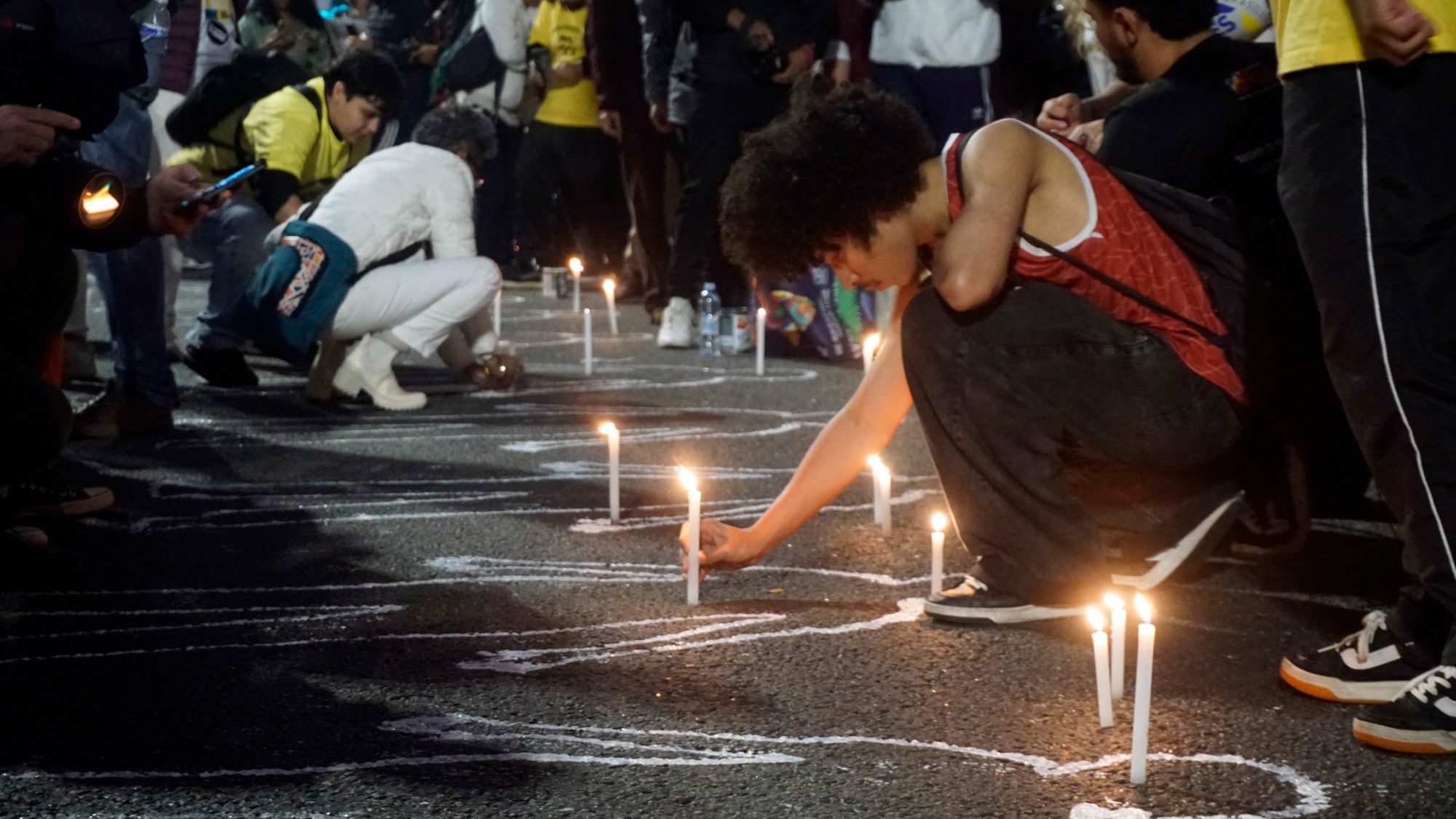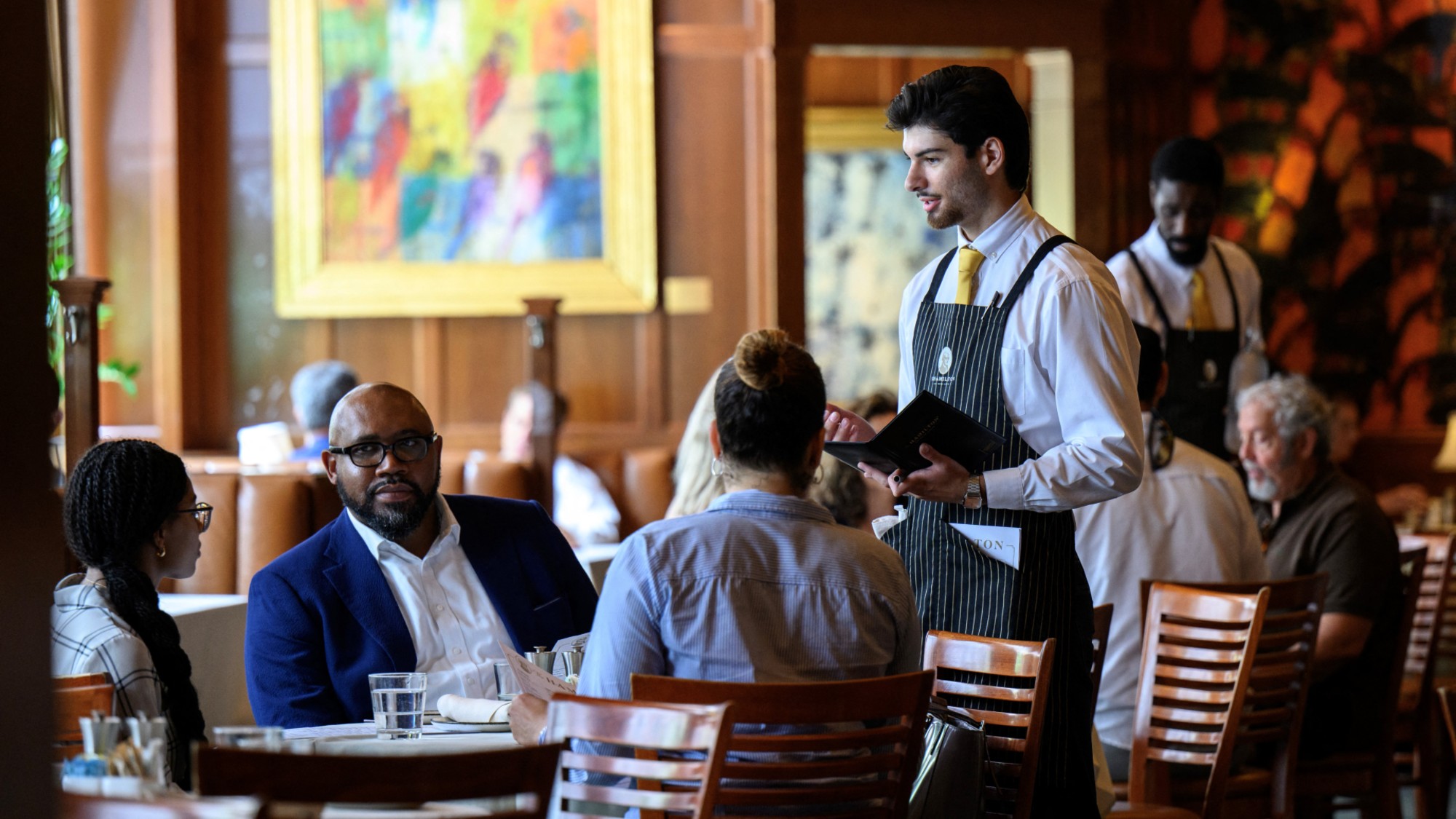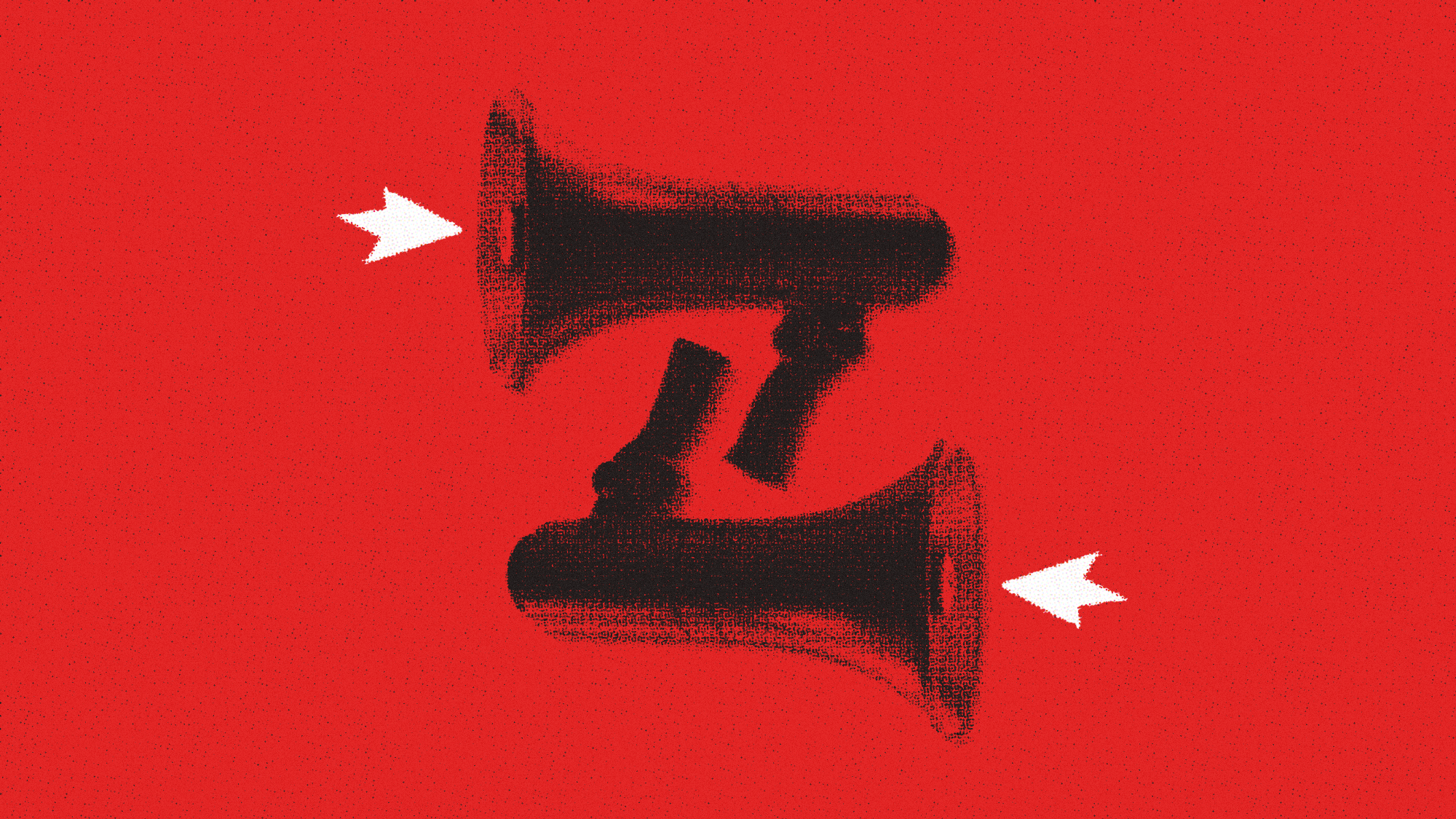The biggest political debates of 2021
Covid restrictions, cancel culture and police powers split Westminster and beyond

A free daily email with the biggest news stories of the day – and the best features from TheWeek.com
You are now subscribed
Your newsletter sign-up was successful
Another year of unprecedented measures aimed at stemming the Covid-19 pandemic has seen MPs and commentators find plenty to disagree on.
From coronavirus restrictions to culture clashes, 2021 has been marked by a number of controversial – and divisive – political debates. Here are The Week’s top five.
1. Covid restrictions
2021 looks set to end as it began, with the Financial Times reporting that Boris Johnson’s cabinet is “split over new Covid-19 restrictions in England”.
The Week
Escape your echo chamber. Get the facts behind the news, plus analysis from multiple perspectives.

Sign up for The Week's Free Newsletters
From our morning news briefing to a weekly Good News Newsletter, get the best of The Week delivered directly to your inbox.
From our morning news briefing to a weekly Good News Newsletter, get the best of The Week delivered directly to your inbox.
A “wave of cabinet opposition” following a marathon meeting of the prime minister’s top team this week forced Johnson to “shelve decisions” on a post-Christmas circuit breaker amid concerns over spiralling cases of the Omicron variant.
No. 10 has confirmed that no new restrictions will be brought in for England before Christmas, warning that ministers “can’t rule out” any further measures after 25 December as the government will “not hesitate to act” if necessary.
The year kicked off with a dispute over lockdown measures to stem the Alpha variant. But whether Johnson will have the authority to impose further restrictions has been cast into doubt after almost 100 Tory MPs voted against “Plan B” measures.
The biggest rebellion against the prime minister so far suggests “Johnson’s already fragile political position” has become “weaker still”, said The New Statesman’s political editor Stephen Bush.
A free daily email with the biggest news stories of the day – and the best features from TheWeek.com
“Any major interventions to slow the spread of Omicron, or to compensate businesses for the loss of custom, may be simply too much of a risk.”
2. Mandatory vaccinations
Boris Johnson and his senior scientific advisers have repeatedly said that widespread vaccination coverage is the only way to stave off further lockdowns. But the principle of forcing people to get their jabs has split Westminster into hawks and doves.
Earlier this month, the prime minister hinted that he had not ruled out introducing mandatory vaccinations, telling a Downing Street press conference that we need to have a “national conversation about the way forward”.
Johnson said he doesn’t believe “we can keep going indefinitely with non-pharmaceutical interventions” such as enforcing masks and social distancing, just because a “substantial proportion of the population” has “sadly” chosen not to get vaccinated.
Tory MPs “declared war” on the suggestion that people could be forced to get jabbed, The Sun said, prompting Health Secretary Sajid Javid to describe mandatory vaccinations as “unethical”. No. 10 later distanced itself from the policy.
Several countries have gone ahead and introduced mandatory vaccinations, including Greece, Austria, France, Indonesia and Costa Rica.
In the US, the country’s second largest school district recently fired 496 employees who had “refused to comply” with a vaccine mandate, The Washington Post reported.
3. Cancel culture
Comments by actor Maureen Lipman have ensured that December’s headlines are full of discussion about one of the year’s most divisive issues: cancel culture.
Defined as an attempt to ostracise or boycott individuals with “unacceptable” views, Lipman told BBC Radio 4’s Today programme that the practice risks “wiping out comedy”.
“I think it’s a revolution, I think it’s in the balance whether we’re ever going to be funny again,” she added. “It’s a bit like laughter in church, something has to be forbidden to make you really laugh, to make you really belly laugh.
“It’s when you shouldn’t be laughing. And so, therefore, all the things that are being cancelled out are, I’m afraid, the things that have always made people laugh.”
A YouGov poll of 1,677 Brits in November found that 57% of people have “found themselves stopping themselves from expressing their political or social views for fear of judgement or negative responses from others”.
However, only 35% of respondents said “they think they know what cancel culture means”. Almost two thirds don’t know what it means (65%), with young people aged 18 to 24 (45%) more likely to have heard of it than people aged 65 and above (26%).
Writing in The Spectator, columnist Patrick West said that it’s already “too late to save comedy from cancel culture”, adding that a “culture of self-censorship is spreading to the world of comedy”.
But The Guardian’s columnist Nesrine Malik argued that concern over cancel culture “is really about old elites losing power in the social media age”.
“Solipsism about cancel culture proves in itself the need for more democratisation,” she added, as well as “less reverence for those who look at a world fundamentally changing, but see only how it is changing for themselves”.
4. Second jobs
The resignation of former Conservative MP Owen Paterson in early November following an attempt by Boris Johnson to reform the parliamentary disciplinary process triggered a debate over whether MPs should be able to hold second jobs.
Paterson was censored by the standards watchdog after it was ruled that he had lobbied on behalf of healthcare company Randox while serving as Shadow Northern Ireland Secretary, continuing when he became a minister after the 2010 election.
The issue that cut through following the “farce” that led to Paterson’s resignation, wrote i news columnist Ian Birrell, is “the extraordinary concept that MPs can openly take cash from outsiders seeking influence”.
The case “shone a spotlight on something that stinks, since he is far from alone in exploiting his parliamentary position, even though direct lobbying is theoretically banned”, he added.
International Trade Secretary Anne-Marie Trevelyan told BBC Radio 4’s Today programme at the time that she would “never” back a ban on all second jobs, arguing: “I think we would lose hugely from that.”
However, she conceded that it would be wise to “rethink” the current rules.
5. Police powers
Home Secretary Priti Patel was accused of attempting to “bypass parliamentary scrutiny” in a series of last-minute amendments to the government’s controversial policing bill.
Members of the House of Lords “voiced anger” over additions to the Police, Crime, Sentencing and Courts Bill, criticising Patel for introducing “controversial” new measures after the bill had already passed through the House of Commons, said The Independent.
The legislation had already proven divisive, with OpenDemocracy labelling it a “threat” to “anyone with a cause they believe in”. It “proposes new crimes” and would “criminalise almost any protester”, giving “police alarmingly wide powers of stop and search”.
Writing in The Guardian, Joshua Clements added that the bill “is not about law and order”, arguing that the “chilling erosion of our freedom of expression” will allow ministers to “suppress any protest they don’t agree with”.
Following a two-decade-long spike in disruptive protests, Patel has argued that the legislation will allow police to hand down criminal disruption prevention orders to halt the movement of “prolific offenders”.
-
 The environmental cost of GLP-1s
The environmental cost of GLP-1sThe explainer Producing the drugs is a dirty process
-
 Greenland’s capital becomes ground zero for the country’s diplomatic straits
Greenland’s capital becomes ground zero for the country’s diplomatic straitsIN THE SPOTLIGHT A flurry of new consular activity in Nuuk shows how important Greenland has become to Europeans’ anxiety about American imperialism
-
 ‘This is something that happens all too often’
‘This is something that happens all too often’Instant Opinion Opinion, comment and editorials of the day
-
 How corrupt is the UK?
How corrupt is the UK?The Explainer Decline in standards ‘risks becoming a defining feature of our political culture’ as Britain falls to lowest ever score on global index
-
 The high street: Britain’s next political battleground?
The high street: Britain’s next political battleground?In the Spotlight Mass closure of shops and influx of organised crime are fuelling voter anger, and offer an opening for Reform UK
-
 Will Netanyahu get a pardon?
Will Netanyahu get a pardon?Today's Big Question Opponents say yes, if he steps down
-
 Is a Reform-Tory pact becoming more likely?
Is a Reform-Tory pact becoming more likely?Today’s Big Question Nigel Farage’s party is ahead in the polls but still falls well short of a Commons majority, while Conservatives are still losing MPs to Reform
-
 Massacre in the favela: Rio’s police take on the gangs
Massacre in the favela: Rio’s police take on the gangsIn the Spotlight The ‘defence operation’ killed 132 suspected gang members, but could spark ‘more hatred and revenge’
-
 ‘The business ultimately has a customer base to answer to’
‘The business ultimately has a customer base to answer to’Instant Opinion Opinion, comment and editorials of the day
-
 Can Gen Z uprisings succeed where other protest movements failed?
Can Gen Z uprisings succeed where other protest movements failed?Today's Big Question Apolitical and leaderless, youth-led protests have real power but are vulnerable to the strongman opportunist
-
 Taking the low road: why the SNP is still standing strong
Taking the low road: why the SNP is still standing strongTalking Point Party is on track for a fifth consecutive victory in May’s Holyrood election, despite controversies and plummeting support